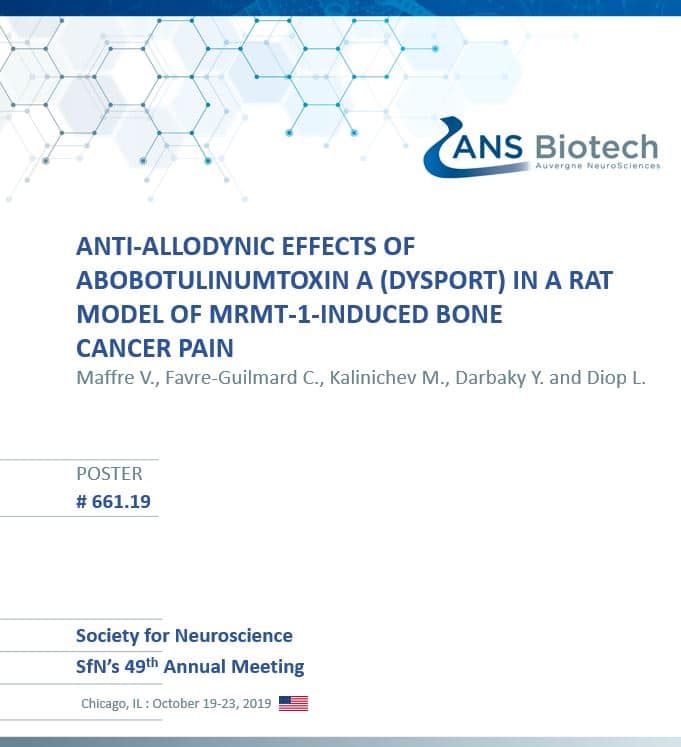
A significant proportion of patients with advanced breast, prostate or lung cancer develop skeletal metastasis and suffer from bone cancer pain. The MRMT-1 mammary carcinoma model of bone cancer in rats mimics aspects of the clinical pathogenesis and symptoms, including chronic pain and can be used for evaluation of the efficacy of novel analgesic medication (Medhurst et al. 2002). There is growing clinical and preclinical evidences that in addition to well-characterized muscle-relaxant properties, abobotulinumtoxinA (Dysport) can reduce different types of pain. The objective of this study was to assess the antiallodynic effect of intra-plantar administrations of (Dysport) in the model of MRMT-1-induced bone cancer pain in rats.
